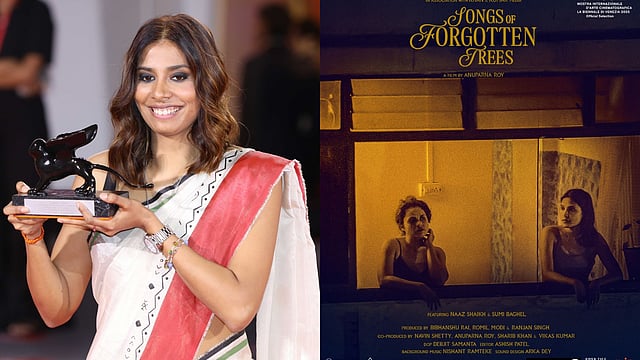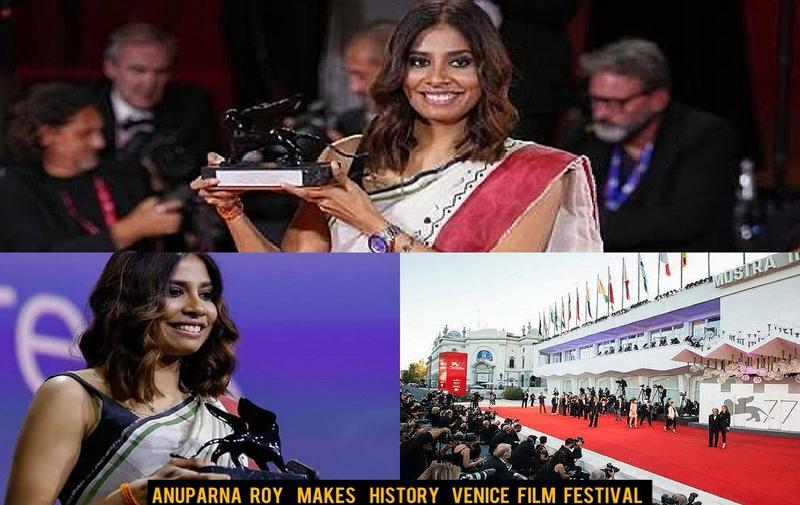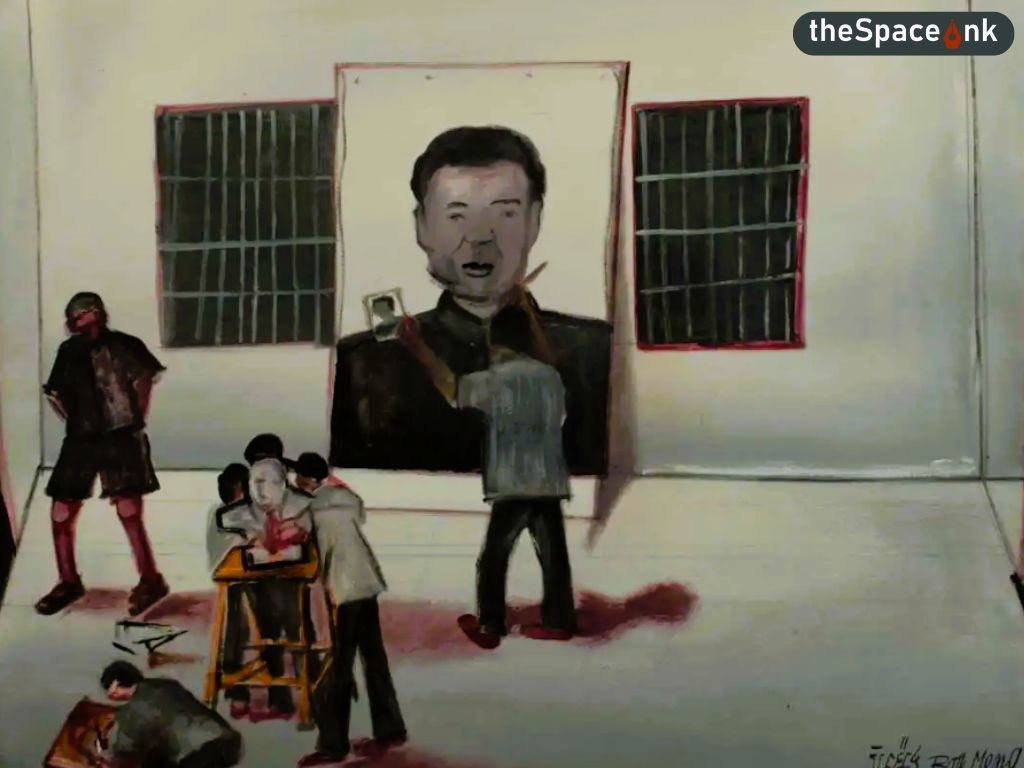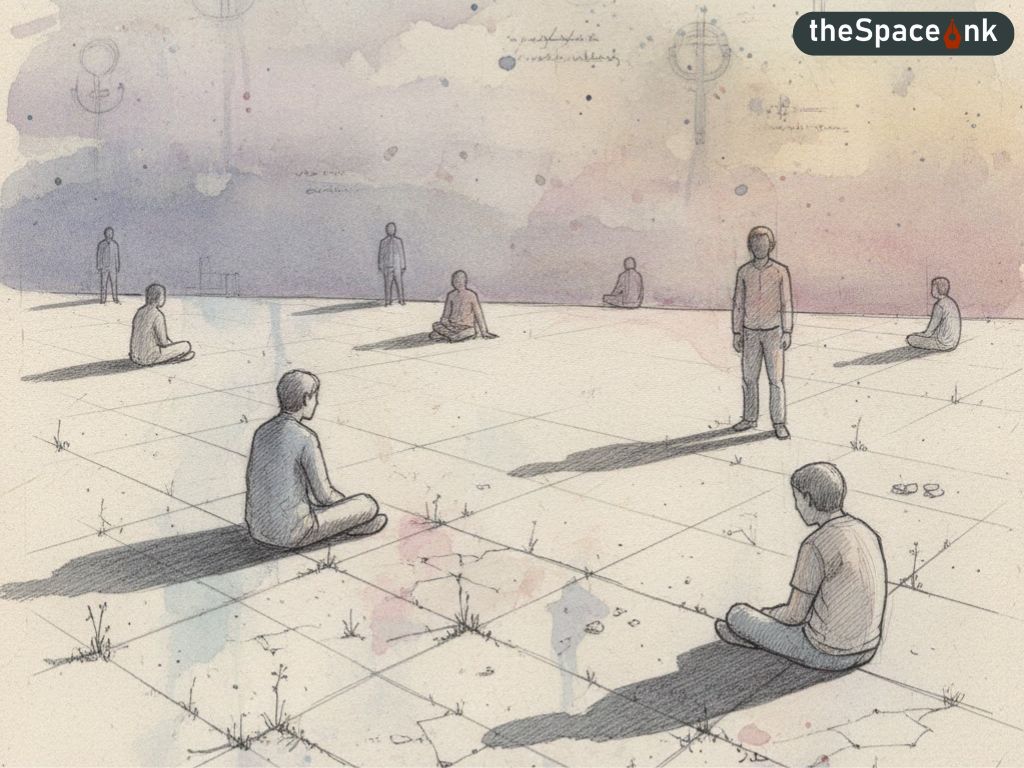(Anuparna Roy)
You may write me down in history
With your bitter, twisted lies,
You may trod me in the very dirt
But still, like dust, I’ll rise.
Does my sassiness upset you?”
–Maya Angelou
When the great American Poet metered these epoch-making verses in late 1970s, perhaps it was not even thought of that this circumstantial abyss would go into this far and even could dully be oxidized in today’s time so deeply with its utter-butter-appetizing diverse narratives! And this digital ‘sassiness’ of wrongful trolling is really upsetting since few days.
I sincerely reassure that instead of new streaming odds and ‘digital dirtiness’ against her name by some stupidest classes of people, Anuparna Roy’s triumph at the 82nd Venice International Film Festival, (where she became the first Indian filmmaker to win the “Best Director award in the Orizzonti” section for her debut feature film “Songs of Forgotten Trees”) marks a pivotal moment in the evolution of Indian independent cinema at this moment.
Also Read: Remembering Robert Redford
Last year’s Payel Kapadia’s glorious victory at Cannes and this Venice’s achievement stand as quiet revolutionary moments where the unseen, persevering labor of women’s imagination becomes a force that is redefining our Indian Cinema’s cultural history. Although Roy’s Film has not been released yet in India officially, but for the case of both films ‘All we imagine as Light’ and ‘Songs for Forgotten Tree’, the depicting light and characteristic luminescence have been in the essence of women spirit and their ‘Surreal’ journey whether it is on Celluloid screen or the Director own-self in real life.

At this time of country and world’s ‘collective misery’ in various segments, their journey affirmed that when artistry is born from resilience and authenticity, it transcends the boundaries of silence, and thus small hope and aspirations wreath to have a space for ‘dreams’ once confined to the margins to unfold into collective possibility of human conquest.
Hailing from an extremely rural expanses of Purulia district in West Bengal, Roy’s ascent to international acclaim is certainly emblematic for many who still believe the power of true art in Cinema in this unthinkable paradoxical times of ‘digital dystopia’. It talks about the true sense of the democratization of artistic cinematic expression irrespective of gender, community base biasness, power, status and small town or village vs big City narratives.
“Roy said vivaciously in her recent interview – “This film is a tribute to every woman who’s ever been silenced, overlooked, or underestimated…”
Anuparna is coming from a collective backdrop of our archetypal rural reality where whether for parents, or for surroundings’ neighbors or for relatives, getting a government job or settled with good ‘salary’ are the only mission if that is in the one hand and then in another societal pressure towards class discrimination, casteism, (what she’s been courageous expressing to the global media) religious sphere bigotry, high level intolerance are present always- in this realm her this true achievement should be celebrated in a higher way. With her journey from an IT professional to an independent Filmmaker underscores a profound narrative of resilience and self-discovery.

The film, although it is not officially released yet here tells a poignant exploration of the lives of two migrant women in Mumbai, defies conventional cinematic tropes, and offer a narrative that is both intimate and expansive. By centering on stories often relegated to the periphery, Roy seemingly tried to challenge the monolithic portrayals of Indian society, presenting a complexity of tapestry that is as diverse as it is complicated.
Roy said vivaciously in her recent interview – “This film is a tribute to every woman who’s ever been silenced, overlooked, or underestimated. May this win inspire more voices, more stories, and more power for women in cinema and beyond”.
Also Read: Unveiling the Veil: Analyzing Patriarchy Through Alternative Cinema
The global recognition of “Songs of Forgotten Trees” in the Orizzonti section, which often regards to avant-garde genre independent cinema, signifies a paradigm shift in the global cinematic landscape of Indian so-called regional cinema what goes beyond of commerce and digital exuberance. On this context I can say that Roy’s film as an independent entity serves as a testament to the potency of independent cinema in fostering cultural dialogues and challenging hegemonic narratives what is tremendously prevalent not only in our cultural ethos of understanding cinema as an art form but also in our society’s judgmental mindscape.

Her success, achieved with a modest budget and a team of emerging talents, exemplifies the potential of small enterprises to effectuate significant cultural impact. While, renowned Filmmaker Buddhadeb Dasgupta’s work often enunciates the barren beauty of Purulia with the vision of perplexity of human nature and relationships (Dasgupta’s 2000 masterpiece “Uttara” won the best director as Silver Lion in Venice), Anuparna’s Purulia identify goes beyond to nurture the characteristic nuances and complexity of a metropolitan existence.
“Roy’s engulfing utterances each and every words for the ‘Birth rights of the children of Palestine’ reflects a conscientious Filmmaker-Artist’s responsibility to engage with global humanitarian issues.”
Roy’s victory extends beyond the realm of cinema; it is a clarion call for the recognition and support of independent filmmakers and small-scale enterprises. In a milieu where financial constraints often stifle creative expression, her achievement highlights the importance of nurturing alternative avenues for storytelling. This definitely advocates for an ecosystem where passion and perseverance can surpass the economic limitations, fostering a more inclusive and diverse cultural landscape.
Applause should be given to Anurag Kashyap and all the co-producers for showcasing this trustworthy conviction which is precious at its every cost.

Furthermore, in accordance with the spirit of my first two sentences of this writing, it is one of most important essence to mention here that while some of most celebrated figures across the world are glittering with their conformist silence, Roy’s engulfing utterances each and every words for the ‘Birth rights of the children of Palestine’ reflects a conscientious Filmmaker-Artist’s responsibility to engage with global humanitarian issues.
Also Read: Painting Films: Antonioni’s Brilliant Use of Cinematic Colour
By leveraging this crucial platform with her even fumbling Bengali accented English, Anuparna amplifies her voice as a True Artist of Humanism, intertwining her most spirited saga : “personal is political”. This act of solidarity reinforces the notion that cinema is not merely a medium of entertainment but a powerful instrument for dissent.
In conclusion remarks I would say that Anuparna Roy’s accolade at the Venice Film Festival is not only a mere award, it is a multifaceted achievement that resonates on various levels. It is a celebration of individual perseverance against all the societal odds of current realities and powerful a vindication of independent cinema along with a truthful testament to the enduring power of aspiring filmmakers, women artists , little enterprisers and small dreamers of this country.
Image Courtesy: Cinema Express, News 18, The Brighter World, Yahoo News
Teacher and Scholar, Santiniketan/Bodhgaya, India








